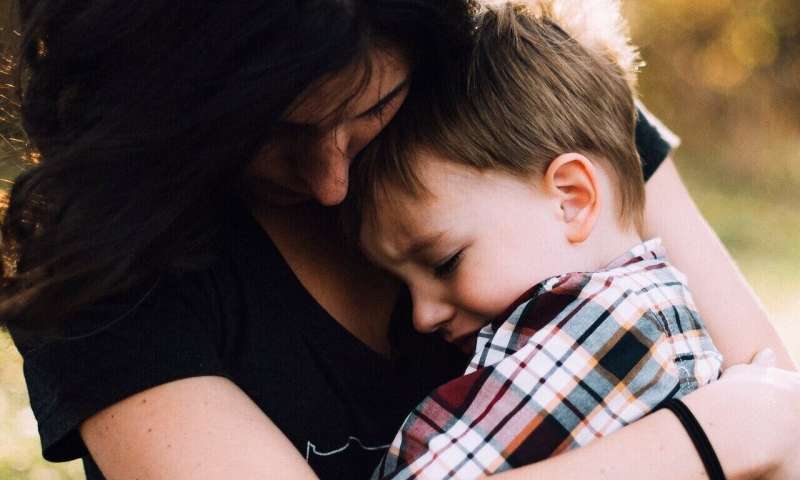This article has been reviewed according to Science X's editorial process and policies. Editors have highlighted the following attributes while ensuring the content's credibility:
fact-checked
trusted source
proofread
Pediatrician offer insights for managing a child's separation anxiety

It's only natural for babies to want to be close to their parents. But what does it mean when suddenly your child cries every time you leave the room? Gianna Frazee, MD, a pediatrician at Town and Country Pediatrics—Mill Valley offers insights on how to help your child navigate separation anxiety.
Separation anxiety is a common developmental phase that usually develops when babies are around 9 to 10 months of age, typically around the time they start crawling. As babies and young children grow and begin to explore the world, they get distressed when separated from their primary caregivers. Dr. Frazee explained that things that used to be fine, like a parent walking out of a room or leaving the child with a babysitter, or even handing them off to a grandparent, can make them feel anxious or scared.
"It is actually a very normal part of childhood development. Once your baby starts to learn object permanence, which is the recognition that a person or object exists, even when it's not there or out of sight, separation anxiety can develop and will often resolve once object permanence is fully developed," she said. "Once they realize they can leave you, they start to feel more upset when you leave."
Separation anxiety is most common in children under 2, but it can linger into the preschool years as well. "It usually will peak around 10 to 18 months of age but can go on until around age 3 to 4," Dr. Frazee said. "It might reoccur when kids are heading off to day care or preschool for the first time."
Knowing the signs
Dr. Frazee explained that there are some common signs that your baby is going through separation anxiety:
- Your baby cries as soon as you leave the room.
- The child becomes clingier and cries in new situations.
- Your baby is crying or waking up more in the middle of the night or refusing to sleep without a parent nearby.
- The crying stops as soon as you return.
How to comfort your child
While this can be a frustrating time for parents, Dr. Frazee outlined some steps you can take to help. Talking about emotions and reading books about feelings can help kids learn more emotional awareness. Reassure your child that their feelings are OK and that you understand their emotions.
"The best way to handle separation anxiety is to really know that it's perfectly normal," she explained. "It's important to make children feel secure when you're around. Comfort them when they're sad or scared and give them lots of cuddles."
Easing the transition
One way to help your child get used to separations is to practice leaving, Dr. Frazee advised. Start small by telling them you are leaving the room for a few minutes. Or let them briefly crawl out of your sight to help them gain confidence.
When you do leave, Dr. Frazee emphasized, keep the goodbye short and sweet. Offer a brief hug or kiss, and reassure your child that you'll be back soon.
"Parents often make the mistake of feeling bad and prolonging the farewell, which tends to just reinforce the child's fears," she said. "Parents may want to try to remove their child's distress, but it's more important to remain calm, confident, and reassuring; saying goodbye; and then really leaving. Most babies or kids will be fine within a few minutes."
Another key component is establishing a consistent schedule. A predictable routine helps your child anticipate what's coming next. This stability provides comfort and reduces anxiety.
"You want to make sure your baby has a solid routine for meals and sleep," Dr. Frazee said. "A hungry or tired baby is definitely more likely to feel anxious or scared."
When your child may need extra help
If you have an older child who is exhibiting signs of separation anxiety for more than a month, it could be a cue that they have a more serious condition known as separation anxiety disorder. If you suspect this is going on with your child, Dr. Frazee suggests talking to your pediatrician.
"Common symptoms are the child is very clingy, and they have excessive worry about being away from their parent. They may even have lots of nightmares. The child may have excessive fears about getting lost or that something bad might happen to a parent or family member when they're not there," she said. "They may refuse to go to school or not want to go to bed without a parent being close by. And it can also present with physical symptoms, like frequent stomachaches or headaches."
Keep in mind that separation anxiety won't last forever. With a little patience and a lot of love, you can help your child develop the resilience to handle these often-challenging moments.





















